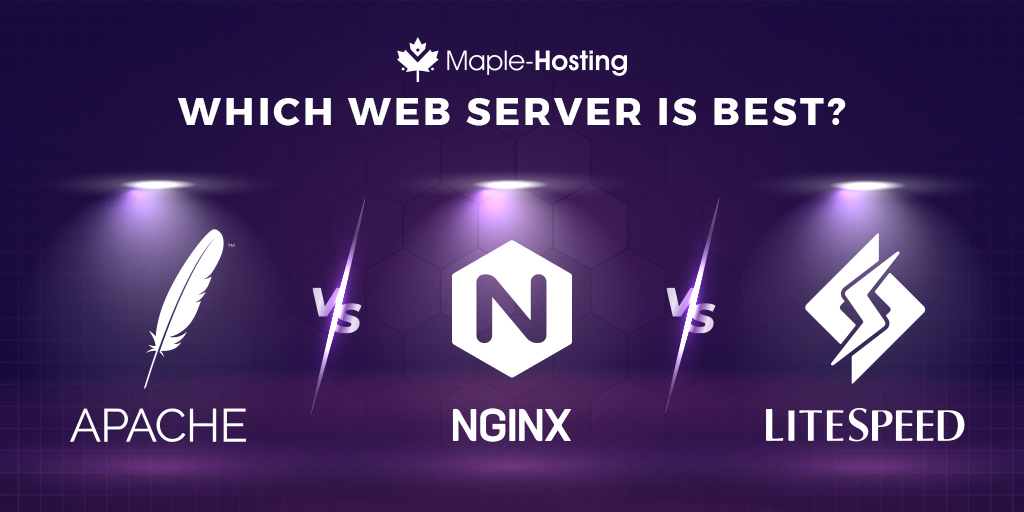Apache and Nginx are widely regarded as the best web servers. They offer robust performance, flexibility, and extensive community support.
Choosing the best web server depends on your specific needs and use cases. Apache is known for its versatility and powerful feature set, making it ideal for complex applications. Nginx excels in handling high-traffic websites due to its efficient resource management and load balancing capabilities.
Both servers support a wide range of web technologies, including PHP, Python, and Ruby. Apache’s. htaccess file support and extensive modules provide ease of customization. Nginx’s event-driven architecture ensures faster processing of concurrent connections. Evaluating your project requirements can help determine the most suitable option between Apache and Nginx.
Key Features
Choosing the best web server depends on various key features. These features ensure optimal performance and reliability. Below, we explore two crucial aspects: speed optimization and scalability.
Speed Optimization
Speed is a vital factor for any web server. Faster servers provide better user experiences. Here are some key points for speed optimization:
- Low Latency: Quick response times are essential for user satisfaction.
- Efficient Resource Management: Proper management of CPU and memory resources.
- Content Caching: Temporary storage of frequently accessed data.
- Compression: Reduce file sizes to speed up load times.
- HTTP/2 Support: Enhances loading speed and performance.
Scalability
Scalability ensures that a web server can handle growth. This is critical for expanding businesses. Key points include:
- Load Balancing: Distributes traffic across multiple servers.
- Vertical Scaling: Upgrading the server’s hardware resources.
- Horizontal Scaling: Adding more servers to the network.
- Cloud Integration: Using cloud services for flexible scaling.
- Cluster Management: Managing groups of servers efficiently.
Understanding these features helps in selecting the best web server. Optimized speed and scalability are essential for a robust web presence.

Credit: cyberpanel.net
Popular Web Servers
Choosing a web server is crucial for your website’s performance. Let’s explore two of the most popular web servers: Apache and Nginx.
Apache
Apache is one of the oldest and most reliable web servers. It has been serving websites since 1995. Apache powers a significant portion of the internet.
Here are some key features of Apache:
- Open-source and free
- Highly customizable
- Supports a wide range of modules
- Compatible with most operating systems
Apache uses a multi-threaded approach to handle requests. This makes it robust for various types of web applications.
Nginx
Nginx is a modern web server that excels in high-performance environments. It was created to handle many connections simultaneously.
Notable features of Nginx include:
- High concurrency support
- Efficient memory usage
- Load balancing
- Reverse proxy capabilities
Nginx uses an event-driven architecture, making it perfect for high-traffic sites.
Performance Metrics
Choosing the best web server is crucial for your website’s success. Key performance metrics help you evaluate a server’s efficiency and reliability. Understanding these metrics can optimize your website’s speed and user experience.
Response Time
Response time measures the duration taken by the server to respond. A lower response time indicates a faster server. This metric is vital for user satisfaction and SEO rankings.
Factors affecting response time include:
- Server location
- Server load
- Network latency
Here is a simple table illustrating response times:
| Server | Response Time |
|---|---|
| Apache | 200ms |
| Nginx | 150ms |
| LiteSpeed | 100ms |
Throughput
Throughput measures how many requests a server handles per second. Higher throughput means better server performance. It ensures your website can handle high traffic without slowing down.
Boosting throughput involves:
- Optimizing server configuration
- Using efficient coding practices
- Upgrading server hardware
Consider these throughput values for different servers:
| Server | Throughput |
|---|---|
| Apache | 2000 req/sec |
| Nginx | 3000 req/sec |
| LiteSpeed | 5000 req/sec |
Monitoring these performance metrics ensures your web server is efficient. It improves user experience and boosts SEO rankings.
Reliability Factors
Reliability is vital for any web server. It ensures your website runs smoothly. The main reliability factors include uptime and error handling. Let’s dive into these critical aspects.
Uptime
Uptime is the time your server stays online. High uptime means your website is always accessible. Reliable web servers offer at least 99.9% uptime. This ensures your website is available almost all the time.
Here’s a comparison of uptime percentages:
| Uptime | Downtime per Year |
|---|---|
| 99.9% | 8.76 hours |
| 99.95% | 4.38 hours |
| 99.99% | 52.56 minutes |
Error Handling
Error handling refers to how your server manages errors. Efficient error handling prevents downtime and keeps your website running. Good web servers have built-in error handling mechanisms.
Important error handling features include:
- Automatic Error Recovery: Fixes minor issues without human intervention.
- Error Logging: Records errors for future troubleshooting.
- Custom Error Pages: Provides user-friendly messages during errors.
These features ensure your website remains stable even during unexpected issues.
Configuration Tips
Configuring your web server properly can significantly enhance its performance and reliability. Below are some valuable tips to get the most out of your web server. These tips focus on Load Balancing and Caching Techniques.
Load Balancing
Load balancing helps distribute incoming traffic across multiple servers. This ensures no single server becomes overwhelmed. Here’s how to set it up:
- Round Robin: Distribute requests evenly across servers.
- Least Connections: Direct traffic to the server with the fewest connections.
- IP Hash: Route traffic based on a unique client IP address.
Use the following configuration example for Nginx:
upstream backend {
server server1.example.com;
server server2.example.com;
server server3.example.com;
}
server {
listen 80;
location / {
proxy_pass http://backend;
}
}
Load balancing can improve your web server’s reliability and performance.
Caching Techniques
Caching can drastically reduce load times and server strain. Implement these caching strategies:
- Browser Caching: Store static files in the user’s browser.
- Server Caching: Save frequently accessed data on the server.
- Content Delivery Network (CDN): Distribute content across multiple geographical locations.
Here’s how to enable browser caching in Apache:
ExpiresActive On
ExpiresByType image/jpg "access plus 1 year"
ExpiresByType image/jpeg "access plus 1 year"
ExpiresByType image/gif "access plus 1 year"
ExpiresByType image/png "access plus 1 year"
ExpiresByType text/css "access plus 1 month"
ExpiresByType application/pdf "access plus 1 month"
ExpiresByType text/x-javascript "access plus 1 month"
ExpiresByType application/x-shockwave-flash "access plus 1 month"
ExpiresByType image/x-icon "access plus 1 year"
ExpiresDefault "access plus 2 days"
Proper caching can significantly boost your web server’s speed and efficiency.

Credit: www.maple-hosting.com
Security Considerations
Choosing the best web server requires careful consideration of security measures. Security is vital to protect data, maintain trust, and ensure smooth operations. Below, we explore key security aspects to consider for your web server.
Ssl/tls
Implementing SSL/TLS encryption safeguards data during transmission. It ensures that data between the server and the client remains private. SSL/TLS provides:
- Data Encryption: Converts data into a secure format.
- Authentication: Verifies the identity of the server.
- Data Integrity: Ensures data is not altered during transfer.
To set up SSL/TLS on your web server:
- Purchase an SSL certificate from a trusted provider.
- Install the certificate on your web server.
- Update your server configuration to use HTTPS.
Tip: Use tools like Let’s Encrypt for free SSL certificates.
Firewall Setup
A firewall is essential for protecting your web server from unauthorized access. It acts as a barrier between your server and potential threats. Key considerations for firewall setup include:
- Default Deny: Block all traffic by default and only allow specific services.
- Port Management: Open only the necessary ports for your web server.
- Regular Updates: Keep firewall rules updated to counter new threats.
Here’s how to set up a firewall:
- Choose a firewall solution (e.g., UFW, iptables).
- Define rules to control incoming and outgoing traffic.
- Regularly audit and update your firewall settings.
Tip: Regularly monitor firewall logs to detect unusual activities.
Case Studies
Real-world examples help illustrate the effectiveness of various web servers. This section highlights how different businesses leverage web servers to meet their unique needs. Dive into these case studies to see the impact of efficient web servers.
Enterprise Implementations
Large enterprises demand high performance and reliability from their web servers. Here are some examples:
| Company | Server Type | Outcome |
|---|---|---|
| TechCorp | Apache | Improved load times by 30% |
| HealthNet | Nginx | Handled 10,000 concurrent users smoothly |
| EduWorld | LiteSpeed | Reduced server costs by 20% |
Small Business Success Stories
Small businesses benefit from cost-effective and scalable web servers. These stories showcase their success:
- Bakery Bliss used Apache to create a seamless online ordering system.
- GreenGarden chose Nginx for its fast and reliable e-commerce site.
- PhotoSnap opted for LiteSpeed, boosting site speed and user engagement.
These case studies demonstrate the versatility and effectiveness of various web servers. Whether for large enterprises or small businesses, the right server makes a difference.

Credit: www.temok.com
Frequently Asked Questions
What Is The Best Web Server?
The best web server depends on your needs. Apache and Nginx are popular. They offer reliability, performance, and community support.
Why Choose Nginx Over Apache?
Nginx is known for handling high traffic. It uses less memory and offers better performance for static content.
Which Web Server Is Easiest To Use?
Apache is often considered easier for beginners. It has extensive documentation and a straightforward configuration.
What Are The Benefits Of Using Apache?
Apache is highly customizable and has a large community. It supports a wide range of modules and features.
Conclusion
Choosing the best web server can boost your website’s performance and reliability. Consider your specific needs, budget, and technical skills. With the right server, you’ll ensure faster load times and enhanced user experience. Make an informed decision to elevate your online presence and keep your visitors engaged.




